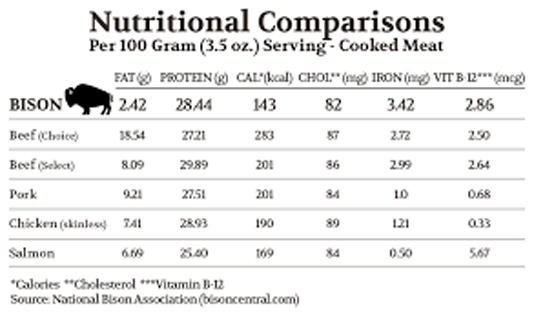Bison Health
Bison are a unique species; they are not cattle. They are still wild animals even when raised domestically. They are genetically hard-wired to defend themselves.
The few that survived extinction had a genetic resistance to disease and infections that have been passed down from generation to generation. Bison are exposed to a wide variety of pathogens that are part of the landscape and environment, but only a small percentage have any effect on them.



